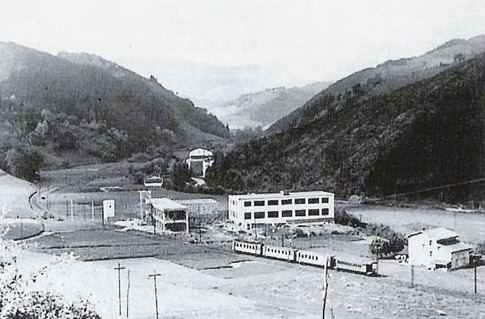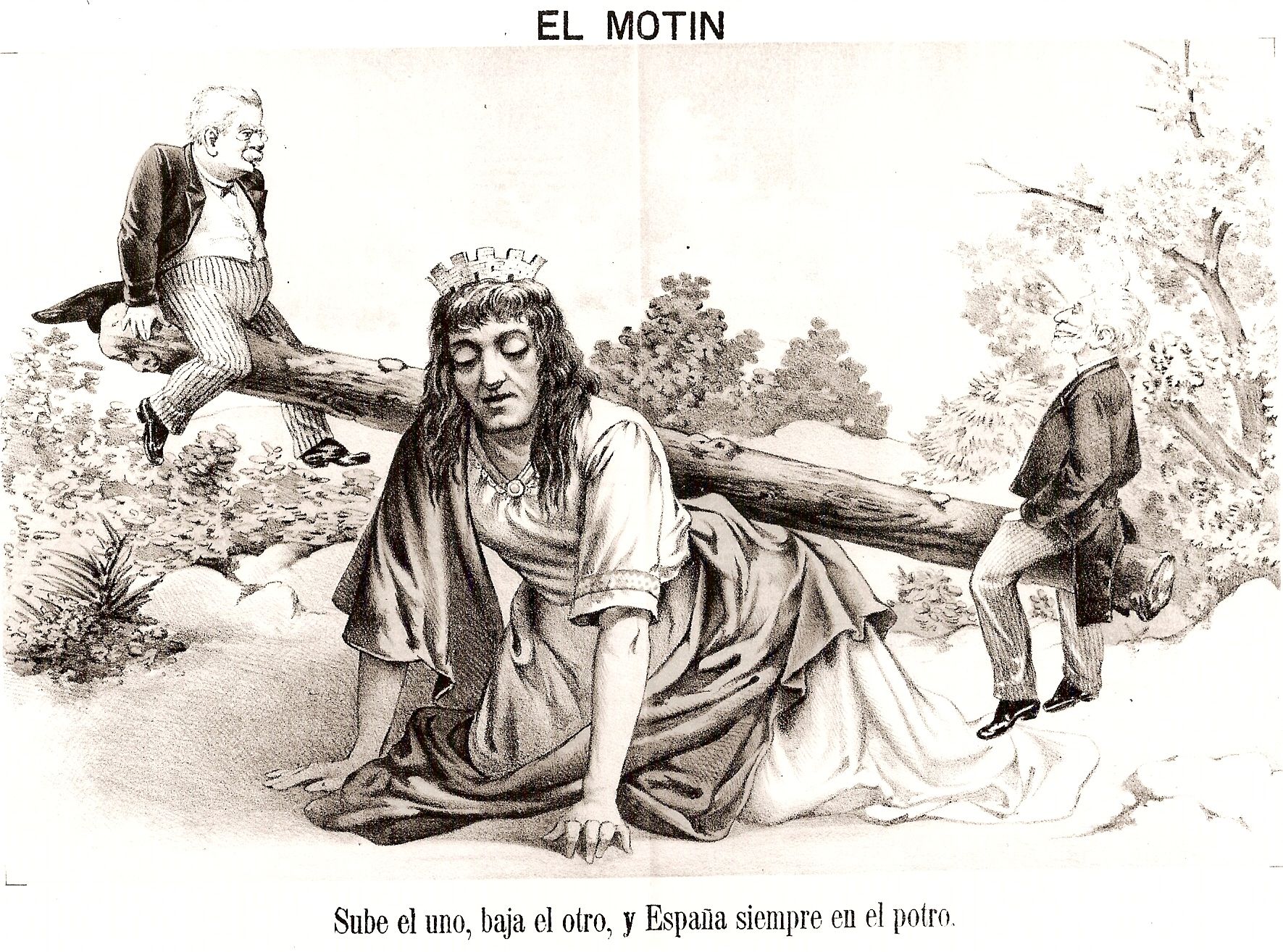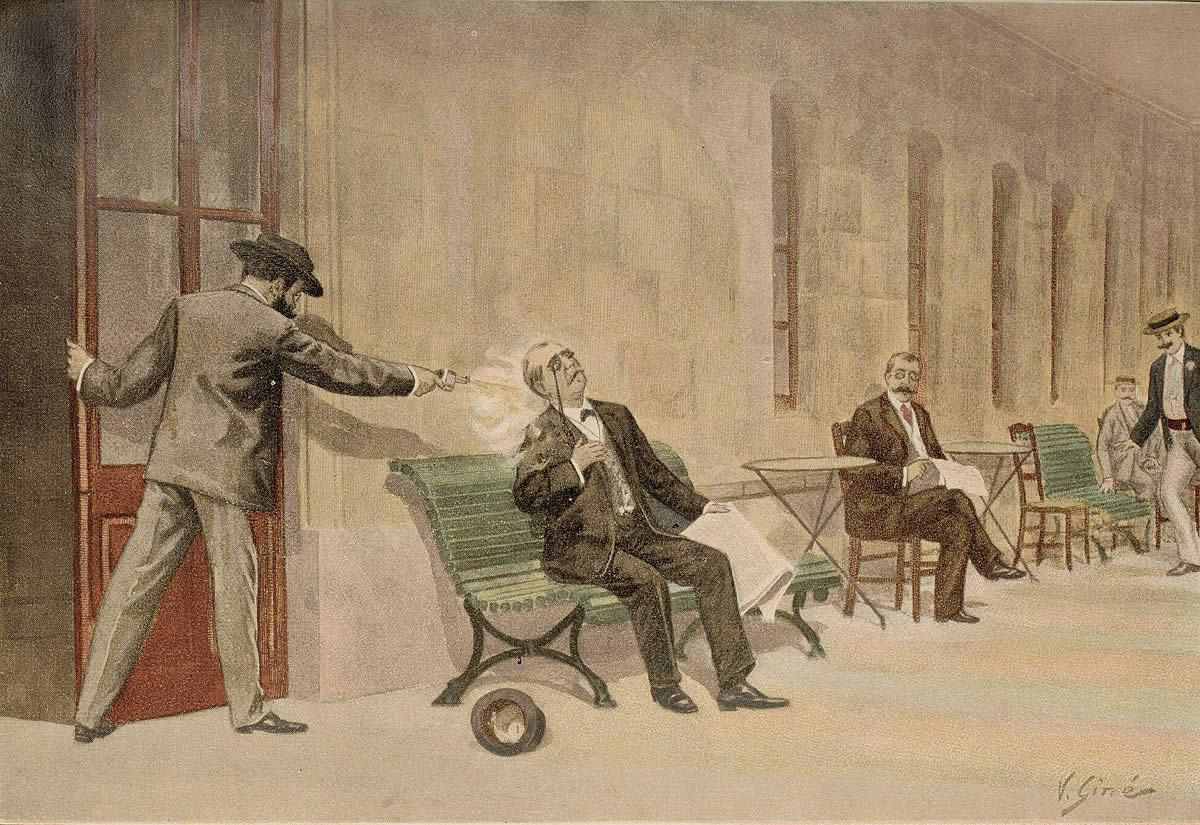|
Mondragón
Mondragón ( eu, Arrasate or ''Mondragoe''), officially known as Arrasate/Mondragón, is a town and municipality in Gipuzkoa Province, Basque Country, Spain. Its population in 2015 was 21,933. Economic and historical significance The town is best known as the birthplace of the Mondragon Corporation, the world's largest worker cooperative, whose foundation was inspired in the 1940s by the Catholic priest José María Arizmendiarrieta. In 2002 the MCC contributed 3.7% to the total GDP of the Basque Country and 7.6% to the industrial GDP. The valley of the High Deba where the town is located enjoyed a high level of employment in the 1980s while the rest of the Basque industrial areas suffered from the steel crisis. Noted poverty expert and sociology professor Barbara J. Peters of Stony Brook Southampton has studied the incorporated and entirely resident-owned town of Mondragón. "In Mondragón, I saw no signs of poverty. I saw no signs of extreme wealth," Peters said. "I saw peop ... [...More Info...] [...Related Items...] OR: [Wikipedia] [Google] [Baidu] |
Mondragon Corporation
The Mondragon Corporation is a corporation and federation of worker cooperatives based in the Basque region of Spain. It was founded in the town of Mondragon in 1956 by José María Arizmendiarrieta and a group of his students at a technical college he founded. Its first product was paraffin heaters. It is the seventh-largest Spanish company in terms of asset turnover and the leading business group in the Basque Country. At the end of 2016, it employed 74,117 people in 257 companies and organizations in four areas of activity: finance, industry, retail and knowledge. By 2019, 81,507 people were employed. Mondragon cooperatives operate in accordance with the Statement on the Co-operative Identity maintained by the International Co-operative Alliance. History In 1941, a young Catholic priest, José María Arizmendiarrieta settled in Mondragón, a town with a population of 7,000 that had not yet recovered from the poverty, hunger, exile, and tension of the Spanish Civil ... [...More Info...] [...Related Items...] OR: [Wikipedia] [Google] [Baidu] |
José María Arizmendiarrieta
Father José María Arizmendiarrieta Madariaga ( Marquina-Xemein, Bizkaia, Spain, April 22, 1915 - Mondragon, Gipuzkoa, Spain, November 29, 1976) was a Basque Catholic priest and promoter of the cooperative companies of the Mondragon Corporation, originally located in the Basque Country and currently spread throughout the world. The year 2021 is the second social economy business group in Spain, bringing together ninety-eight cooperatives, eight foundations, one mutual, ten coverage entities and seven international delegations, distributed in four areas: finance, industry, distribution and knowledge. Arizmendiarrieta was a seminarian in Vitoria when the Spanish civil war began in 1936, and consequently he was mobilized by the Basque Government. Due to his knowledge of Basque language, he was assigned to the editor of the new newspaper Eguna, where he remained until the Francisco Franco’s troops entered Bilbao. He was arrested by them, and again mobilized for the Military ... [...More Info...] [...Related Items...] OR: [Wikipedia] [Google] [Baidu] |
Mondragon University
Mondragon University ( eu, Mondragon Unibertsitatea, MU) is a non-profit cooperative private university in the Basque Country, officially established and recognised in 1997. It is part of Mondragon Corporation. Its main campus is in Mondragón, Gipuzkoa. As of February 2016, it had about 4000 students pursuing 22 bachelor's degrees, 13 master's degrees and several advanced courses. History The institution first originated as the ''Escuela Politécnica Superior'', a Polytechnic school established by Father José María Arizmendiarrieta in 1943 and open to young people in the region. The current university was formed in 1997 through the association of three existing educational cooperatives tied to Mondragon Corporation: ''Mondragon Goi Eskola Politeknikoa “Jose Mª Arizmendiarrieta” S. Coop.'', ''ETEO S. Coop.'', and ''Irakasle Eskola S. Coop''. Prior to 1997, these three educational cooperatives were affiliated with the University of the Basque Country. The new entity ... [...More Info...] [...Related Items...] OR: [Wikipedia] [Google] [Baidu] |
Worker Cooperative
A worker cooperative is a cooperative owned and self-managed by its workers. This control may mean a firm where every worker-owner participates in decision-making in a democratic fashion, or it may refer to one in which management is elected by every worker-owner who each have one vote. History Worker cooperatives rose to prominence during the Industrial Revolution as part of the labour movement. As employment moved to industrial areas and job sectors declined, workers began organizing and controlling businesses for themselves. Worker cooperatives were originally sparked by "critical reaction to industrial capitalism and the excesses of the industrial revolution." Some worker cooperatives were designed to "cope with the evils of unbridled capitalism and the insecurities of wage labor". The philosophy that underpinned the cooperative movement stemmed from the socialist writings of thinkers including Robert Owen and Charles Fourier. Robert Owen, considered by many as the father ... [...More Info...] [...Related Items...] OR: [Wikipedia] [Google] [Baidu] |
Debagoiena
Debagoiena ( es, Alto Deva) is one of the seven eskualdeak/comarcas of Gipuzkoa, Spain , image_flag = Bandera de España.svg , image_coat = Escudo de España (mazonado).svg , national_motto = '' Plus ultra'' ( Latin)(English: "Further Beyond") , national_anthem = (English: "Royal March") , .... There are eight municipalities in Debagoiena, the biggest of which being Arrasate/Mondragón. Communities Comarcas of Gipuzkoa {{BasqueCountry-geo-stub ... [...More Info...] [...Related Items...] OR: [Wikipedia] [Google] [Baidu] |
Basque Country (autonomous Community)
The Basque Country (; eu, Euskadi ; es, País Vasco ), also called Basque Autonomous Community ( eu, Euskal Autonomia Erkidegoa, links=no, EAE; es, Comunidad Autónoma del País Vasco, links=no, CAPV), is an autonomous community of Spain. It includes the provinces (and historical territories) of Álava, Biscay, and Gipuzkoa, located in the north of the Iberian Peninsula, bordering on the autonomous communities of Cantabria, Castile and León, La Rioja, and Navarre, and the French region of Nouvelle-Aquitaine. The Basque Country or Basque Autonomous Community is enshrined as a ' nationality' within the Spanish State in its 1979 statute of autonomy, pursuant to the administrative acquis laid out in the 1978 Spanish Constitution. The statute provides the legal framework for the development of the Basque people on Spanish soil. Navarre, which had narrowly rejected a joint statute with Gipuzkoa, Álava and Biscay in 1932, became a full-fledged foral autonomous communit ... [...More Info...] [...Related Items...] OR: [Wikipedia] [Google] [Baidu] |
Antonio Cánovas Del Castillo
Antonio Cánovas del Castillo (8 February 18288 August 1897) was a Spanish politician and historian known principally for serving six terms as Prime Minister and his overarching role as "architect" of the regime that ensued with the 1874 restoration of the Bourbon monarchy. He died in office at the hands of an anarchist, Michele Angiolillo. Leader of the Liberal-Conservative Party—also known more simply as the Conservative Party—the name of Cánovas became symbolic of the alternate succession in the Restoration regime along with Práxedes Mateo Sagasta's. Early career Born in Málaga as the son of Antonio Cánovas García and Juana del Castillo y Estébanez, Cánovas moved to Madrid after the death of his father where he lived with his mother's cousin, the writer Serafín Estébanez Calderón. Although he studied law at the University of Madrid, he showed an early interest in politics and Spanish history. His active involvement in politics dates to the 1854 revolutio ... [...More Info...] [...Related Items...] OR: [Wikipedia] [Google] [Baidu] |
Michele Angiolillo
Michele Angiolillo Lombardi (; 5 June 1871 – 20 August 1897) was an Italian anarchist, born in Foggia, Italy. He assassinated Spanish Prime Minister Antonio Cánovas del Castillo in 1897 and was captured and executed by Spanish authorities in the same year. Motive and the Montjuïc trial On 7 June 1896, a bomb was thrown at the Corpus Christi procession in Barcelona. At least twelve people died and 45 were seriously injured. The crime, which was attributed by police to an unidentified anarchist, precipitated an aggressive reprisal against Spanish anarchists, communists, socialists and republicans, in what became known as the Montjuïc trial: 300 alleged revolutionaries were jailed at Montjuïc Fortress, and confessions were extracted by torture. The prime minister Antonio Cánovas del Castillo himself ordered the repression. Reports of the prisoner abuse were circulated widely in the European press. Of the 87 prisoners taken to trial at Montjuïc, eight received death sent ... [...More Info...] [...Related Items...] OR: [Wikipedia] [Google] [Baidu] |
Eskoriatza
, population_note = , population_density_km2 = auto , blank_name_sec1 = Official language(s) , blank_info_sec1 = BasqueSpanish , timezone = CET , utc_offset = +1 , timezone_DST = CEST , utc_offset_DST = +2 , postal_code_type = Postal code , postal_code = 20540 , area_code_type = Dialing code , area_code = , leader_title = Mayor In many countries, a mayor is the highest-ranking official in a municipal government such as that of a city or a town. Worldwide, there is a wide variance in local laws and customs regarding the powers and responsibilities of a mayor as well as ... , leader_name = José Ramón Zubizarreta Alegría , leader_party = PNV , website = , footnotes = Eskoriatza ( es, Escoriaza) is a town and Municipalities of Spain, municipality in Gipuzkoa, in the Autonomous com ... [...More Info...] [...Related Items...] OR: [Wikipedia] [Google] [Baidu] |
Gipuzkoa
Gipuzkoa (, , ; es, Guipúzcoa ; french: Guipuscoa) is a province of Spain and a historical territory of the autonomous community of the Basque Country. Its capital city is Donostia-San Sebastián. Gipuzkoa shares borders with the French department of Pyrénées-Atlantiques at the northeast, with the province and autonomous community of Navarre at east, Biscay at west, Álava at southwest and the Bay of Biscay to its north. It is located at the easternmost extreme of the Cantabric Sea, in the Bay of Biscay. It has of coast land. With a total area of , Gipuzkoa is the smallest province of Spain. The province has 89 municipalities and a population of 720,592 inhabitants (2018), from which more than half live in the Donostia-San Sebastián metropolitan area. Apart from the capital, other important cities are Irun, Errenteria, Zarautz, Mondragón, Eibar, Hondarribia, Oñati, Tolosa, Beasain and Pasaia. The oceanic climate gives the province an intense green co ... [...More Info...] [...Related Items...] OR: [Wikipedia] [Google] [Baidu] |
Bilbao
) , motto = , image_map = , mapsize = 275 px , map_caption = Interactive map outlining Bilbao , pushpin_map = Spain Basque Country#Spain#Europe , pushpin_map_caption = Location within Basque Country##Location within Spain##Location within Europe , pushpin_relief = yes , subdivision_type = Country , subdivision_name = , subdivision_type1 = Autonomous community , subdivision_name1 = Basque Country , subdivision_type2 = Province , subdivision_name2 = Biscay , subdivision_type3 = Comarca , subdivision_name3 = Greater Bilbao , seat_type = , seat = , coordinates = , coordinates_footnotes = , elevation_m = 19 , elevation_min_m = 0 , elevation_max_m = 689 , area_footnotes = , area_total_km2 = 41.50 , area_urban_km2 = 18.22 , ... [...More Info...] [...Related Items...] OR: [Wikipedia] [Google] [Baidu] |
Municipalities Of Spain
The municipality ( es, municipio, , ca, municipi, gl, concello, eu, udalerria, ast, conceyu)In other languages of Spain: * Catalan/Valencian (), sing. ''municipi''. * Galician () or (), sing. ''municipio''/''bisbarra''. * Basque (), sing. ''udalerria''. * Asturian (), sing. ''conceyu''. is the basic local administrative division in Spain together with the province. Organisation Each municipality forms part of a province which in turn forms part or the whole of an autonomous community (17 in total plus Ceuta and Melilla): some autonomous communities also group municipalities into entities known as '' comarcas'' (districts) or '' mancomunidades'' (commonwealths). There are a total of 8,131 municipalities in Spain, including the autonomous cities of Ceuta and Melilla. In the Principality of Asturias, municipalities are officially named ''concejos'' (councils). The average population of a municipality is about 5,300, but this figure masks a huge range: the most po ... [...More Info...] [...Related Items...] OR: [Wikipedia] [Google] [Baidu] |





